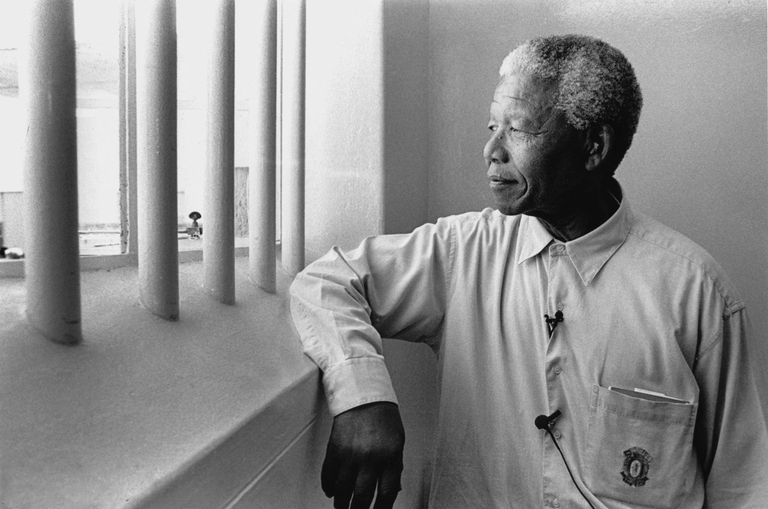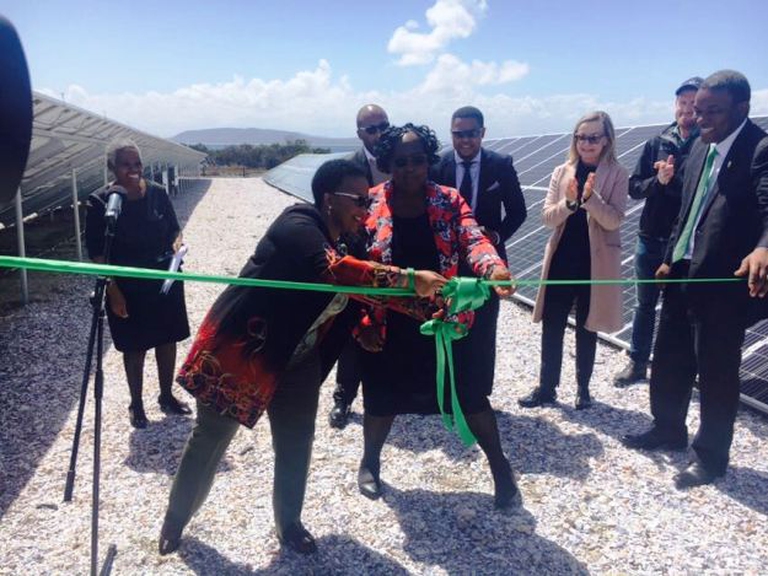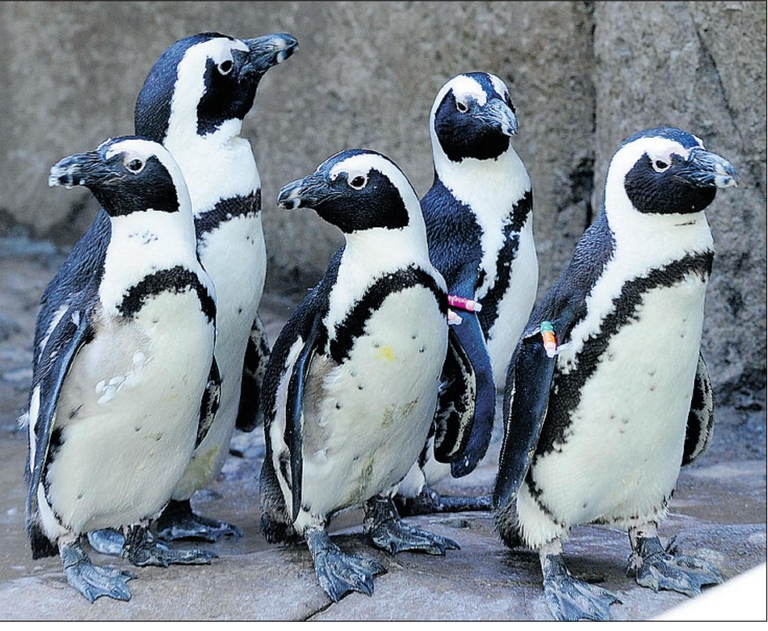
A group of experts in Tokyo suggested pouring radioactive water from Fukushima into the open sea. A marine biochemist explains the consequences of this absurd decision.
Robben Island’s solar energy micro-grid project will produce almost one million kilowatt hours of electricity annually, significantly reducing the cost and impact of buying diesel.
Robben Island, where the late Nelson Mandela, who was given a life sentence for conspiracy, spent 18 of his 27 years in prison, will be powered by solar energy. A remarkable step in harnessing nature in order to generate power according to former Tourism Minister Tokozile Xasa. South Africa’s national Department of Tourism (DOT) commissioned and awarded a contract to Cape Town-based firm Sola Future Energy to use photovoltaic modules in a bid to reduce the island’s dependency on expensive fossil fuels.
Read more: The life of Nelson Mandela
“It is imperative to know that this project will save the fiscal an estimated amount of almost 5 million South African rands (over 400,000 dollars) per annum, which means that it will pay for itself within five years,” Xasa continued. “We can never run out of sunshine and by harnessing energy from natural renewable sources like the sun, dependence on more environmentally harmful sources such as oil and coal can be decreased”.
The system consists of a solar photovoltaic (PV) farm combined with a lithium-ion battery storage facility and smart controllers to ensure a seamless electricity supply, whilst significantly reducing the island’s fossil fuel consumption. The PV farm consists of 1,960 Canadian solar modules and has the capacity of generating over 650 kilowatt hour power supply and almost one million kilowatt hours of electricity annually, reducing the island’s reliance on the existing diesel-powered system.
Read more: Maasai women are leading a solar revolution in Africa
“The solar microgrid will reduce the island’s usage of fuel generators by almost 45 per cent, which means that the annual diesel usage will trickle down from around 619,000 litres to 344,000 litres, saving the island about 275,000 litres of diesel per annum,” Sola Future Energy CEO Dom Wills explained.
“The integrated system carries the entire daytime electricity load and priorities solar photovoltaic energy generation, which is supported by a 828 kilowatt hours battery storage enabling the solar energy to run even on cloudy days and at night,” he added.
Read more: Solar energy in Africa will meet the needs of 600 million people
Laura Robison, member of the Robben Island Museum Council and an environmental conservationist, remains optimistic that the island’s history will be preserved in a clean and environmentally-friendly manner. “This is a unique opportunity to showcase the application of renewable energy technology in the heritage sector in the country,” she said.
In addition, Robben Island is home to Several bird species seeking refuge and breeding grounds on its shores, especially the African jackass penguin, an endangered species found only on the southern coast of Africa. This means that the project’s design and construction had to adhere to strict environmental standards and requirements. Penguin-proof fences and bird-proof wires to protect both animals and the solar panel wires had to be put in place and the staff working on the project was required to attend specialist training in case of encounters with wildlife, or to handle any archeological artefacts that might be discovered underground.
Siamo anche su WhatsApp. Segui il canale ufficiale LifeGate per restare aggiornata, aggiornato sulle ultime notizie e sulle nostre attività.
![]()
Quest'opera è distribuita con Licenza Creative Commons Attribuzione - Non commerciale - Non opere derivate 4.0 Internazionale.
A group of experts in Tokyo suggested pouring radioactive water from Fukushima into the open sea. A marine biochemist explains the consequences of this absurd decision.
A federal court in Washington, D.C. has struck down the Dakota Access Pipeline, following years of campaigning by the Standing Rock Sioux tribe.
The Scottish island of Eigg is self-sufficient for its energy needs, relying almost entirely on renewable sources, especially thanks to a coordinated community effort.
President Magufuli in unmovable in going ahead with the Stiegler’s Gorge dam despite conservationists’ warnings of the damage it will cause the Selous Game Reserve’s ecosystem and wildlife.
A large dam along the Luangwa River in Zambia would have posed a serious risk to local people and wildlife, leading hundreds of thousands to oppose it. A call to which the government responded by halting plans to build it.
The first one megawatt solar power plant in the Chernobyl exclusion zone has become operational. This is the first step in a renewable energy development project promoted by the Ukrainian government in the area.
A tanker exploded at a gas and petrol station in Nigeria’s Nasarawa state on the 10th of September, killing 35 people and leaving some burned beyond recognition; 3 citizens had several spine and brain injuries, 2 of them are still on Intesive Care Units. Fela Habila , a local singer, is now stable and out of danger but
The largest tidal power plant in the world will be built in the Larantuka Straits. It will serve 100,000 people and help overcome some of the challenges of energy provision in Indonesia.
The Balikpapan oil spill off the coast or Borneo in Indonesia covers 120 square kilometres. It has caused the death of 5 people, health and economic problems for local communities, as well as threatening wildlife and local ecosystems.











